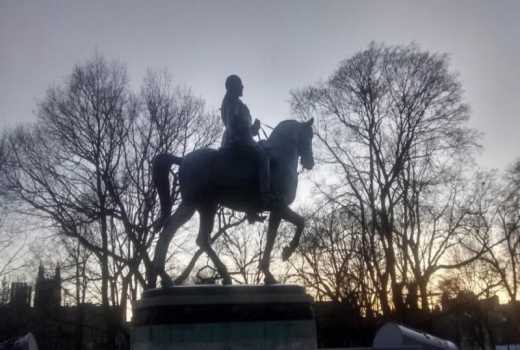
The wind of change blowing over the British Empire in the 1950s resulted in independence for several countries. Some like Kenya became republics while others like Canada remained dominions with the Queen of England still the head of state. The wind did not kill the British Empire with a bang; it has been dying with whimpers - with Brexit the latest.
With independence, we got our own national anthem and other symbols of nationhood. Unlike my parents, we no longer sing “God Save the Queen.” But evidence of Empire’s heydays is still with us, from the language I am writing in to palatial homes that once dotted Kenya’s white highlands and former colonies. Football, financial and legal systems and the Church of England are other remnants of the British Empire.